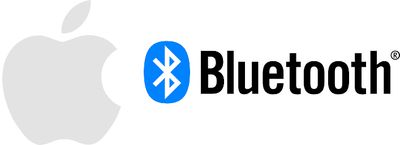Pennsylvania-based entity Rembrandt Wireless Technologies has filed a lawsuit against Apple today in the U.S. district court for Eastern Texas, accusing the iPhone maker of infringing on two of its Bluetooth-related patents.

In its complaint, obtained by MacRumors, Rembrandt alleges that all Apple products that support Bluetooth 2.0 or newer with Enhanced Data Rate, including the iPhone 3GS and newer, all iPad and Apple Watch models, several Mac models, HomePod, and others, infringe on U.S. Patent Nos. 8,457,228 and 8,023,580.
Enhanced Data Rate, often shortened to EDR, is a technology that allows for faster Bluetooth data transmission speeds.
The asserted patents describe wireless communication techniques that appear to be related to Bluetooth with EDR, so the alleged infringement could extend to virtually any Bluetooth-enabled device. The same Eastern Texas court ordered Samsung to pay $11 million to Rembrandt last year over the same two patents.
Rembrandt is not the original assignee of the patents, which both expired on December 4, 2018, according to its complaint. The entity says it is still entitled to damages for infringement that occurred prior to the expiration of the patents.
Rembrandt is seeking an award of damages stemming from Apple's infringement in an amount to be proven at trial. In the Samsung case, a jury calculated damages based on a royalty rate of approximately five-and-a-half cents per infringing device. Rembrandt has requested a jury trial against Apple as well.
The case has been assigned to U.S. District Judge Rodney Gilstrap, who also presided over the Samsung trial.




















Top Rated Comments
Someone is playing Apple' game on them.
The clowning is back - nice!
Is USA the only nation that gives patent for even water, if I apply for it?
Wonder if Rembrandt's family is around - they can apply for a patent and go after everyone who ever mentioned the name in an article, and this company.
They might have a valid point if the patent holder at the time was not paid anything - essentially IP theft.
Will be interesting to se how the court handles an "American" company as the defendant!
Or do you think they should not be able to license their patents to manufacturers? Who ever owns the biggest factories can just steal from the little guy, and just "make stuff". The little guy doesn't own a factory and gets his patents stolen from them.
1. If someone invents something but does not have the resources to manufacture it there is no compelling reason for anyone to buy the patent and actually make something. Since the inventor can’t get a patent there is now prior art and anyone can use it. You are essentially saying only large well funded companies should be able to patent something. A startup probably would find funding harder to get as well for similar reasons.
2. Large companies patent many things they never use, so supporting the make or lose idea would hurt them and thus why support such a scheme?